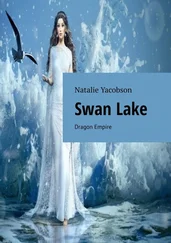Shane Legg - A Collection of Definitions of Intelligence
Здесь есть возможность читать онлайн «Shane Legg - A Collection of Definitions of Intelligence» весь текст электронной книги совершенно бесплатно (целиком полную версию без сокращений). В некоторых случаях можно слушать аудио, скачать через торрент в формате fb2 и присутствует краткое содержание. Год выпуска: 2007, Жанр: Прочая документальная литература, на английском языке. Описание произведения, (предисловие) а так же отзывы посетителей доступны на портале библиотеки ЛибКат.
- Название:A Collection of Definitions of Intelligence
- Автор:
- Жанр:
- Год:2007
- ISBN:нет данных
- Рейтинг книги:4 / 5. Голосов: 1
-
Избранное:Добавить в избранное
- Отзывы:
-
Ваша оценка:
- 80
- 1
- 2
- 3
- 4
- 5
A Collection of Definitions of Intelligence: краткое содержание, описание и аннотация
Предлагаем к чтению аннотацию, описание, краткое содержание или предисловие (зависит от того, что написал сам автор книги «A Collection of Definitions of Intelligence»). Если вы не нашли необходимую информацию о книге — напишите в комментариях, мы постараемся отыскать её.
A Collection of Definitions of Intelligence — читать онлайн бесплатно полную книгу (весь текст) целиком
Ниже представлен текст книги, разбитый по страницам. Система сохранения места последней прочитанной страницы, позволяет с удобством читать онлайн бесплатно книгу «A Collection of Definitions of Intelligence», без необходимости каждый раз заново искать на чём Вы остановились. Поставьте закладку, и сможете в любой момент перейти на страницу, на которой закончили чтение.
Интервал:
Закладка:
• “Intelligent systems are expected to work, and work well, in many different environments. Their property of intelligence allows them to maximize the probability of success even if full knowledge of the situation is not available. Functioning of intelligent systems cannot be considered separately from the environment and the concrete situation including the goal.” R. R. Gudwin [Gudwin:00]
• “[Performance intelligence is] the successful (i.e., goal-achieving) performance of the system in a complicated environment.” J. A. Horst [Horst:02]
• “Intelligence is the ability to use optimally limited resources -- including time -- to achieve goals.” R. Kurzweil [Kurzweil:00]
• “Intelligence is the power to rapidly find an adequate solution in what appears a priori (to observers) to be an immense search space.” D. Lenat and E. Feigenbaum [Lenat:91]
• “Intelligence measures an agent’s ability to achieve goals in a wide range of environments.” S. Legg and M. Hutter [Legg:06ior]
• “… doing well at a broad range of tasks is an empirical definition of ‘intelligence’ ” H. Masum [Masum:02]
• “Intelligence is the computational part of the ability to achieve goals in the world. Varying kinds and degrees of intelligence occur in people, many animals and some machines.” J. McCarthy [McCarthy:04]
• “… the ability to solve hard problems.” M. Minsky [Minsky:85]
• “Intelligence is the ability to process information properly in a complex environment. The criteria of properness are not predefined and hence not available beforehand. They are acquired as a result of the information processing.” H. Nakashima [Nakashima:99]
• “… in any real situation behavior appropriate to the ends of the system and adaptive to the demands of the environment can occur, within some limits of speed and complexity.” A. Newell and H. A. Simon [Newell:76]
• “[An intelligent agent does what] is appropriate for its circumstances and its goal, it is flexible to changing environments and changing goals, it learns from experience, and it makes appropriate choices given perceptual limitations and finite computation.” D. Poole [Poole:98]
• “Intelligence means getting better over time.” Schank [Schank:91]
• “Intelligence is the ability for an information processing system to adapt to its environment with insufficient knowledge and resources.” P. Wang [Wang:95]
• “… the mental ability to sustain successful life.” K. Warwick quoted in [Asohan:03]
• “… the essential, domain-independent skills necessary for acquiring a wide range of domain-specific knowledge -- the ability to learn anything. Achieving this with ‘artificial general intelligence’ (AGI) requires a highly adaptive, general-purpose system that can autonomously acquire an extremely wide range of specific knowledge and skills and can improve its own cognitive ability through self-directed learning.” P. Voss [Voss:05]
Is a single definition possible?
In matters of definition, it is difficult to argue that there is an objective sense in which one definition could be considered to be the correct one. Nevertheless, some definitions are clearly more concise, precise and general than others. Furthermore, it is clear that many of the definitions listed above are strongly related to each other and share many common features. If we scan through the definitions pulling out commonly occurring features we find that intelligence:
• Is a property that an individual agent has as it interacts with its environment or environments.
• Is related to the agent’s ability to succeed or profit with respect to some goal or objective.
• Depends on how able the agent is to adapt to different objectives and environments.
Putting these key attributes together produces the informal definition of intelligence that we have adopted,
“Intelligence measures an agent’s ability to achieve goals in a wide range of environments.” S. Legg and M. Hutter
Features such as the ability to learn and adapt, or to understand, are implicit in the above definition as these capacities enable an agent to succeed in a wide range of environments. For a more comprehensive explanation, along with a mathematical formalisation of the above definition, see [Legg:06ior] or our forthcoming journal paper.
References
• Albus:91 J. S. Albus. Outline for a theory of intelligence. IEEE Trans. Systems, Man and Cybernetics, 21(3):473--509, 1991.
• Anastasi:92 A. Anastasi. What counselors should know about the use and interpretation of psychological tests. Journal of Counseling and Development, 70(5):610--615, 1992.
• Anderson:06 M. Anderson. Intelligence. MS Encarta online encyclopedia, 2006.
• Asohan:03 A. Asohan. Leading humanity forward. The Star, October 14, 2003.
• Binet:1905 A. Binet and T. Simon. Methodes nouvelles por le diagnostic du niveai intellectuel des anormaux. L’Année Psychologique, 11:191--244, 1905.
• Bingham:37 W. V. Bingham. Aptitudes and aptitude testing. Harper & Brothers, New York, 1937.
• Boring:23 E. G. Boring. Intelligence as the tests test it. New Republic, 35:35--37, 1923.
• Burt:57 C. L. Burt. The causes and treatments of backwardness. University of London press, 1957.
• Drever:52 J. Drever. A dictionary of psychology. Penguin Books, Harmondsworth, 1952.
• Fogel:95 D. B. Fogel. Review of computational intelligence: Imitating life. Proc. of the IEEE, 83(11), 1995.
• Gardner:93 H. Gardner. Frames of Mind: Theory of multiple intelligences. Fontana Press, 1993.
• Goertzel:06 B. Goertzel. The Hidden Pattern. Brown Walker Press, 2006.
• Gottfredson:97msoi L. S. Gottfredson. Mainstream science on intelligence: An editorial with 52 signatories, history, and bibliography. Intelligence, 24(1):13--23, 1997.
• Gregory:98 R. L. Gregory. The Oxford Companion to the Mind. Oxford University Press, Oxford, UK, 1998.
• Gudwin:00 R. R. Gudwin. Evaluating intelligence: A computational semiotics perspective. In IEEE International conference on systems, man and cybernetics, pages 2080--2085, Nashville, Tenessee, USA, 2000.
• Henmon:21 V. A. C. Henmon. The measurement of intelligence. School and Society, 13:151--158, 1921.
• Herrnstein:96 R. J. Herrnstein and C. Murray. The Bell Curve: Intelligence and Class Structure in American Life. Free Press, 1996.
• Horst:02 J. Horst. A native intelligence metric for artificial systems. In Performance Metrics for Intelligent Systems Workshop, Gaithersburg, MD, USA, 2002.
• Hutter:04uaibook M. Hutter. Universal Artificial Intelligence: Sequential Decisions based on Algorithmic Probability. Springer, Berlin, 2005. 300 pages, http://www.hutter1.net/ai/uaibook.htm.
• Kurzweil:00 R. Kurzweil. The age of spiritual machines: When computers exceed human intelligence. Penguin, 2000.
• Legg:idefs S. Legg and M. Hutter. A collection of definitions of intelligence. http://www.idsia.ch/∼shane/intelligence.html.
• Legg:06ior S. Legg and M. Hutter. A formal measure of machine intelligence. In Proc. 15th Annual Machine Learning Conference of Belgium and The Netherlands (Benelearn’06), pages 73--80, Ghent, 2006.
• Lenat:91 D. Lenat and E. Feigenbaum. On the thresholds of knowledge. Artificial Intelligence, 47:185--250, 1991.
• Masum:02 H. Masum, S. Christensen, and F. Oppacher. The Turing ratio: Metrics for open-ended tasks. In GECCO 2002: Proceedings of the Genetic and Evolutionary Computation Conference, pages 973--980, New York, 2002. Morgan Kaufmann Publishers.
• McCarthy:04 J. McCarthy. What is artificial intelligence? www-formal.stanford.edu/jmc/whatisai/whatisai.html, 2004.
• Minsky:85 M. Minsky. The Society of Mind. Simon and Schuster, New York, 1985.
Читать дальшеИнтервал:
Закладка:
Похожие книги на «A Collection of Definitions of Intelligence»
Представляем Вашему вниманию похожие книги на «A Collection of Definitions of Intelligence» списком для выбора. Мы отобрали схожую по названию и смыслу литературу в надежде предоставить читателям больше вариантов отыскать новые, интересные, ещё непрочитанные произведения.
Обсуждение, отзывы о книге «A Collection of Definitions of Intelligence» и просто собственные мнения читателей. Оставьте ваши комментарии, напишите, что Вы думаете о произведении, его смысле или главных героях. Укажите что конкретно понравилось, а что нет, и почему Вы так считаете.












